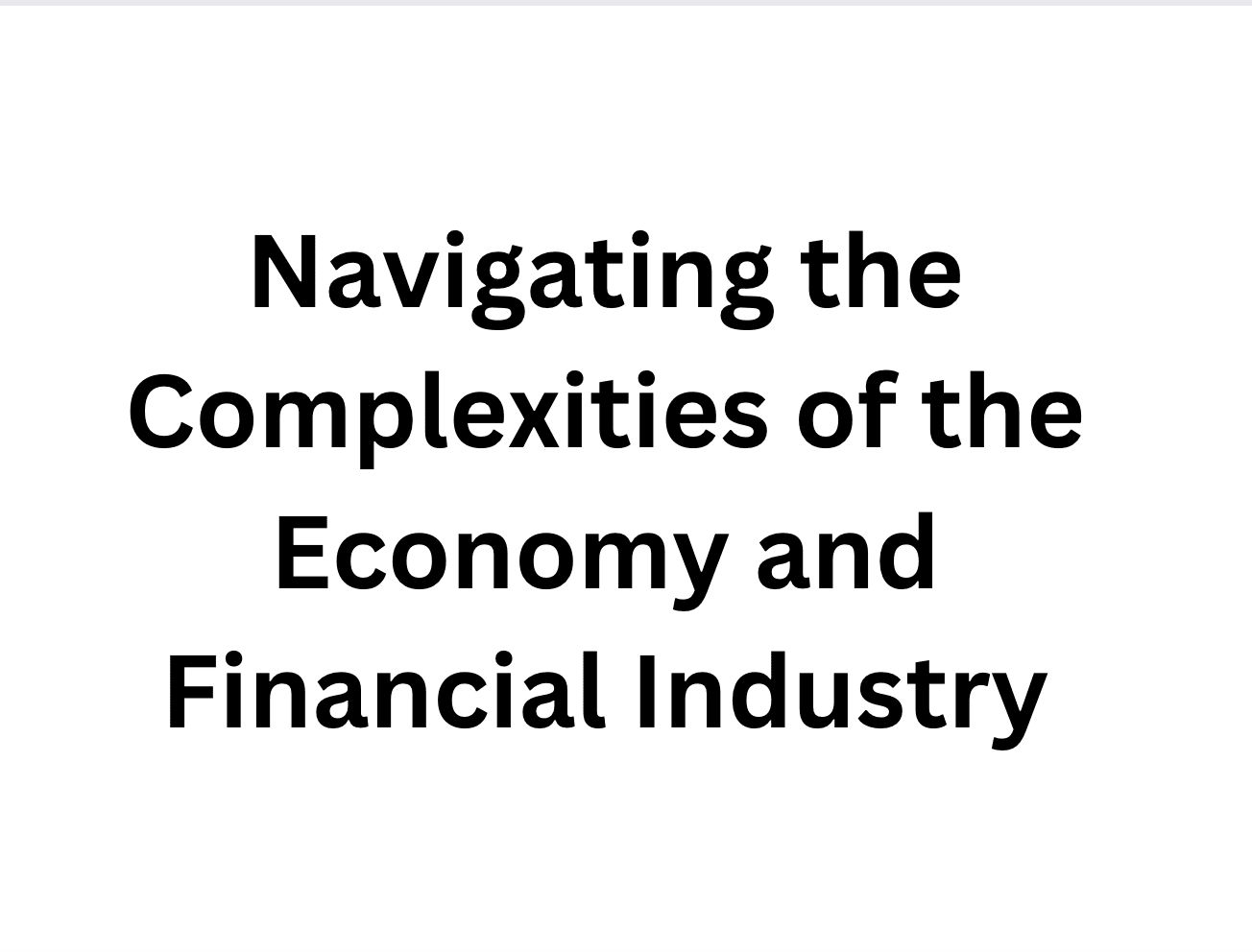Navigating the Complexities of the Economy and Financial Industry

Introduction
The global economy is a complex system that involves multiple factors such as government policies, international trade, and financial markets. It can be overwhelming to understand it, especially with the rapid changes in technology and the impact of global events. In this article, we will discuss the critical factors that affect the economy and financial industry.
Economic Growth and GDP
Economic growth is an essential aspect of any economy. It refers to the increase in goods and services produced over a particular period. The Gross Domestic Product (GDP) is used to measure economic growth. It is the total value of all goods and services produced within a country’s borders. A country’s GDP is influenced by factors such as government spending, investment, and exports. Economic growth is crucial for the creation of jobs and improved living standards.
Inflation and Deflation
Inflation and deflation are two important concepts in economics. Inflation refers to the increase in the prices of goods and services over time. Deflation, on the other hand, refers to a decrease in prices. Both inflation and deflation can have a significant impact on the economy. High inflation can lead to reduced purchasing power, while deflation can lead to decreased consumer spending and economic growth.
Use of Investment Fund Accounting Software
Investment fund accounting software is a valuable tool for investment firms and financial institutions. It helps them manage their investment portfolios, track performance, and maintain accurate financial records. The software is designed to handle the complex accounting and reporting requirements of investment funds, such as hedge funds, private equity funds, and mutual funds.
This is crucial for maintaining transparency and accountability, as well as for complying with regulatory requirements. The software automates many of the tedious accounting tasks, such as calculating net asset values (NAVs), maintaining general ledgers, and reconciling bank statements.
Monetary Policy and Central Banks
Monetary policy is the process by which a country’s central bank manages the supply of money and interest rates to achieve its economic objectives. Central banks use various tools such as open market operations, reserve requirements, and discount rates to influence the money supply and control inflation. The Federal Reserve is the central bank of the United States and plays a significant role in the global economy.
Fiscal Policy and Government Spending
Fiscal policy refers to the government’s use of taxation and spending to influence the economy. Government spending can stimulate economic growth by creating jobs and increasing demand for goods and services. Taxation can be used to control inflation and reduce income inequality. The government’s role in the economy is critical, and its policies can have far-reaching effects on businesses and individuals.
International Trade and Globalization
International trade is the exchange of goods and services between countries. Globalization has led to increased international trade, with companies seeking to expand their markets and reduce costs. The World Trade Organization (WTO) oversees global trade agreements and helps to resolve trade disputes between countries. International trade has both benefits and drawbacks, with some countries benefiting from increased trade while others struggle to compete.
Financial Markets and Investment
Financial markets play a critical role in the economy, providing a platform for the buying and selling of financial instruments such as stocks, bonds, and commodities. Investors use financial markets to invest in companies and other assets to earn returns on their investment. Financial markets are subject to volatility, and investors must manage their risks to achieve their investment objectives.
Emerging Trends in the Economy and Financial Industry
The industry is constantly evolving, with emerging trends such as technology, sustainability, and social responsibility. Technology has led to increased automation, with businesses using artificial intelligence and robotics to improve efficiency and reduce costs. Sustainability and social responsibility have become critical issues for businesses, with consumers demanding environmentally friendly and socially responsible products and services.
Conclusion
The economy and financial industry are complex systems that require a deep understanding of various factors that affect them. Economic growth, inflation, monetary and fiscal policies, international trade, financial markets, and emerging trends are all critical to the functioning of finance industry. As businesses and individuals navigate the complexities, they must remain informed and adaptable to thrive in a rapidly changing environment.
